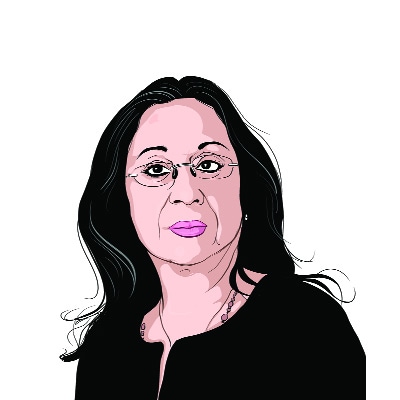Opinion Can there be peace in South Asia?
ON a cold and foggy evening last week,I went to see Shashi Tharoor....
ON a cold and foggy evening last week,I went to see Shashi Tharoor. The objective of my visit was to glean from our Minister of State for External Affairs his views on whether we can hope for peace in South Asia more this year than we did last year. The shadow of 26/11 loomed large over 2009. And,every time our Prime Minister made the smallest conciliatory noise we (including me) had a fit.
Last year was a bad one for Indian foreign policy in general. Our Ministry of External Affairs seemed hopelessly weak when responding to Pakistans belligerence and denials on 26/11. In Afghanistan,despite the Americans discovering ISI involvement in the bombing of our embassy in Kabul,we came up with a less than robust response. The Chinese made so many incursions into Arunachal Pradesh that we lost count. Emboldened by this they then ordered our Prime Minister to cancel his visit to Arunachal and made menacing noises when the Dalai Lama announced a visit to Tawang. Chinas stand on the so-called Arunachal Pradesh is consistent. We firmly oppose the Dalai Lama visiting the so-called Arunachal Pradesh, said Jiang Yu,spokeswoman of Chinas Foreign Ministry.
When I met the Minister,my first question was why India always behaved in such a namby-pamby fashion in the face of open hostility. He smiled indulgently and pointed out that I should pay more attention to substance. The Prime Minister ignored Chinese objections on Arunachal and so did the Dalai Lama. The Minister seemed convinced that there was nothing for us to worry about on the Chinese front.
When the talk turned to Pakistan,the Minister said that all India wanted was some clear indication that the men responsible for 26/11 would be punished and we would start talking peace again. We would like some reassurance that the Pakistan government recognises that the enemies of India are also the enemies of Pakistan.
As I drove off into the dark and foggy night,I mulled over war and peace in South Asia at the start of the second decade of the 21st century. By the time I got home,I was in a mood of dark depression. Things are very bad. And even if we do start peace talks with Pakistan,they could end up being no more useful than all those other rounds of engagement in the past sixty years. South Asia is the epicentre of worldwide jihad and after the United States and Israel,there is no country the jihadis hate more than India. If,Allah forbid,Pakistans nuclear bombs fall into the hands of the sort of people who planned and executed 26/11,the Indian sub-continent could simply cease to exist. We must do everything to prevent such a horrible eventuality.
As someone who believes that the United States is Indias friend because it is in that countrys best interests and our own,I think we must strengthen that friendship. And,hope that President Obama has some way of controlling Pakistans nukes. At the same time we must try and find some way of trusting the Pakistan government. It is true that neither the Pakistani army nor the government of President Zardari have done much since the attack on Mumbai to inspire trust. If Ajmal Kasab had not been caught alive and if CCTV footage of the attack on the Taj and Oberoi had not traced telephone calls back to Pakistan we might still be hearing nothing but denials of Pakistani involvement. But,do we have any choice except to try and find someone in Pakistan to talk to?
Having said this let me add that if a new process of dialogue does begin,the rules of engagement must be new ones or the exercise will be pointless. The attack on Mumbai was a defining moment. An act of war. There is a possibility that some elements of the Pakistani army were involved. We need to know if this is true. The ten who came to Mumbai were pawns guided at every step by those who sat in Pakistan watching the attack on television and openly taking pleasure in its success. A peace process can only begin when the Pakistani government tells us who these men were and whether they will be punished.
Ever since Atal Bihari Vajpayee took that bus to Lahore ten years ago,every gesture of peace India has made has been treated with contempt. Even today every time the Indian government mentions Islamist terrorism,Pakistan responds with Kashmir. It is an absurd response since the attack on Mumbai made it abundantly clear that the worldwide jihad has goals that go far beyond Kashmir. This is something that we can and must talk to Pakistan about. Whose side is Pakistan on when it comes to the jihad?




